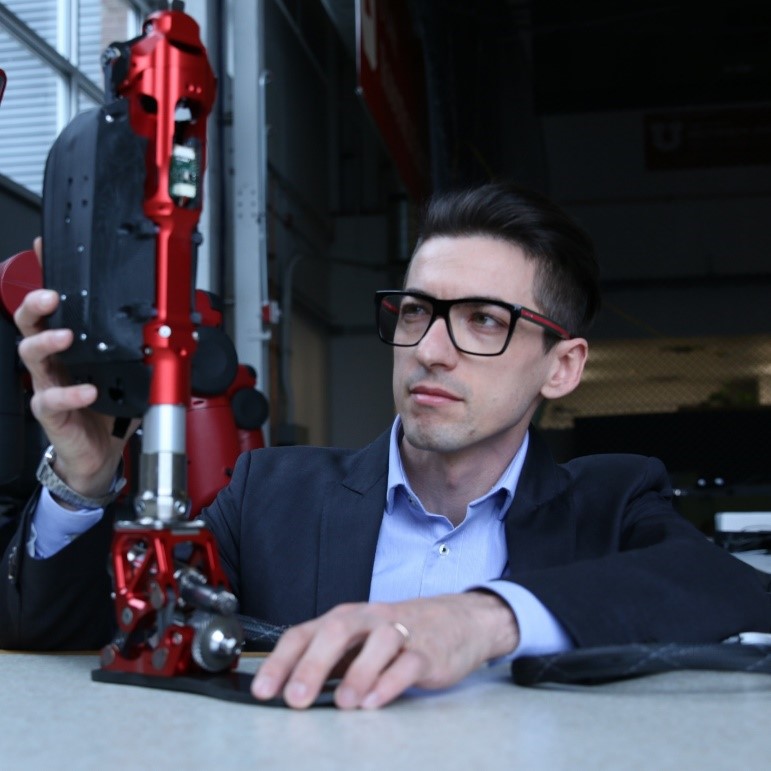Control Seminar
Moving Bionic Legs from the Lab to the Real World
This event is free and open to the publicAdd to Google Calendar

***Event will take place via Zoom. Zoom link and password will be distributed to the Controls Group e-mail list-serv. To join this list-serv, please send an (empty) email message to [email protected] with the word “subscribe” in the subject line. Zoom information is also available upon request to Katherine Godwin ([email protected]).
ABSTRACT: Bionic technologies present a unique opportunity to address the unmet needs of millions of individuals with physical disabilities. Critical to this goal is the development of mechatronic technologies and control systems that intuitively interact with the human, ultimately leading to a symbiotic human-machine interaction. In this talk, I describe research activities underway to advance the science of bionics. I present novel designs empowering lightweight, compact, and high-performance robotic leg prostheses and exoskeletons. I introduce adaptive, volitional control strategies enabling bionic legs to assist users with gait and functional mobility. Further, I review preclinical trials with individuals with lower-limb impairments. Finally, I discuss critical areas of future research that must be advanced to move bionic legs from the lab to the real world.
BIO: Tommaso Lenzi, PhD, is an Assistant Professor in the Department of Mechanical Engineering and a Core Faculty in the Robotics Center at the University of Utah. Previously, he was Research Scientist at the Rehabilitation Institute of Chicago (2015-2016), and a Postdoctoral Fellow at Northwestern University (2013-2014). Dr. Lenzi received the PhD degree in Biorobotics from Scuola Superiore Sant’Anna in 2012 and the MS degree in Biomedical Engineering from the University of Pisa in 2008. At Utah, he directs the Bionic Engineering Lab, where he conducts research sponsored by the Department of Defense, the National Science Foundation, and the National Institute of Health. His main research interests include robotics, mechatronics, and rehabilitation medicine with a major emphasis on the design and control of wearable robots for human assistance and rehabilitation. He serves as Associate Editor for IEEE Robotics and Automation Letters, the International Conferences on Rehabilitation Robotics (ICORR), and Biomedical Robotics and Biomechatronics (BIOROB). He is a member of IEEE, the Robotics and Automation Society (RAS), and the Engineering in Medicine and Biology Society (EMBS). Dr. Lenzi has co-authored more than 60 peer-reviewed scientific publications and 10 patents.
 MENU
MENU 
